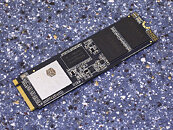8BitDo Introduces 64 Bluetooth Controller
The 8BitDo 64 Bluetooth Controller revives the iconic N64 layout, but wrapped in an ergonomic, updated body. A precision hall-effect joystick with the original gate and signature concave rubber joystick cap. Say goodbye to the infamous loose joysticks. We're bringing back the signature C-buttons, A/B and Start—with the button sizes, positioning and feel just like the original.
Multiplayer on the N64 defined an era, and now with Analogue 3D and the 8BitDo 64 Controllers, that era is redefined. The 8BitDo 64 Controller, designed hand-in-hand with Analogue, creates an experience like no other when paired with Analogue 3D. It's a celebration of the N64, the greatest multiplayer system ever. It's Bluetooth-ready, with vibration support and platform compatibility with the new Analogue 3D, Switch, (including N64 Online) and more. Play N64 games like never before—with the best of both worlds in your hands. Available to pre-order at Amazon—MSRP $39.99.
Multiplayer on the N64 defined an era, and now with Analogue 3D and the 8BitDo 64 Controllers, that era is redefined. The 8BitDo 64 Controller, designed hand-in-hand with Analogue, creates an experience like no other when paired with Analogue 3D. It's a celebration of the N64, the greatest multiplayer system ever. It's Bluetooth-ready, with vibration support and platform compatibility with the new Analogue 3D, Switch, (including N64 Online) and more. Play N64 games like never before—with the best of both worlds in your hands. Available to pre-order at Amazon—MSRP $39.99.








